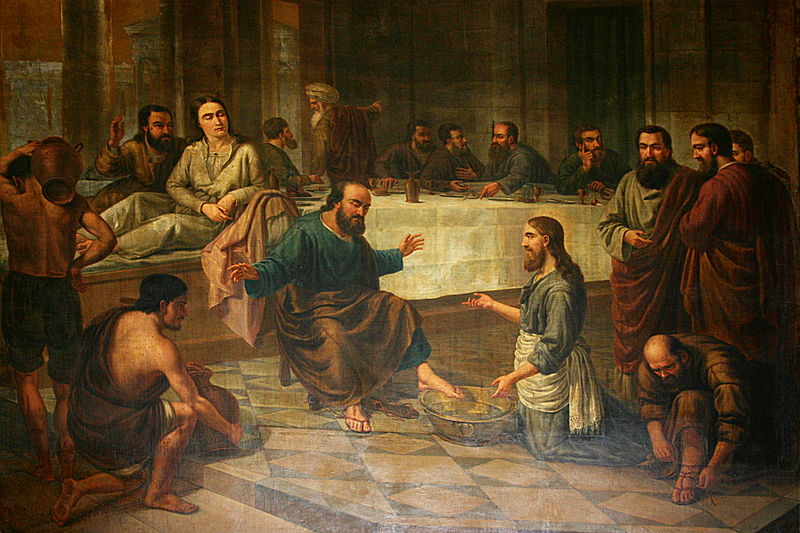In the previous column, we explored how Catholic economic theology needs to be rooted in scriptural anthropology, and specificially in the Genesis narratives. We found that the two important aspects of scriptural anthropology for our purposes, drawn from Genesis, are man’s sinful nature and his divine call to be co-creator. And we found that markets are the economic mode of organization best-suited to those characteristics. Markets work by and through our sinful nature, because they aggregate what little information we have ; and markets are an excellent avenue for human creativity. It’s now time to explore this latest idea a little deeper.
Let us start from the beginning. We Christians believe in a Triune God, one in three persons. The God we worship describes himself as Yahweh or, as the Biblical Tetragrammaton is often interpreted, Being itself. As Card. Joseph Ratzinger writes in his Introduction to Christianity, the fact that God is both Being itself and Triune means that the very nature of being itself is being-in-relation.
This, in turn, means that as creatures of God made in His image, we must also be beings-in-relation. We are thus called to be twice co-creators: collaborators in God’s active-work of co-creation, and co-workers with each other, as Paul calls his brothers and sisters (1 Cor 3:9; 1 Thess 3:2; Col 4:11).
This has implications in the economic sphere. The lens I’ve outlined points to markets as a privileged canvas for economic co-creators, because the marketplace is a constant dialogue between buyer and seller in a marketplace. Our society gives us the image of the superhuman, visionary entrepreneur who imposes his promethean vision on the marketplace. The humdrum reality is much more beautiful, and much more in keeping with the Christian vision: almost all world-changing innovations are created through a dialogue with the marketplace.
This notion of marketplace dialogue leads us naturally to the next notion through which we can understand markets through a Catholic lens: the notion of co-creative service. In a competitive marketplace (and this is a very important caveat I will get to in later columns), the very best business strategy is always to solve an important problem for your customer. You have to put yourself in your customer’s mind.
As an entrepreneur, I know this intimately. The first version of my product was the product I wanted to build. But I quickly realized that in order to survive I would have to build the product in light of my customers’ preferences, not my own. This was humbling in a salutary way.
In a competitive marketplace, you have to serve your customer in a deep, profound way. We can say this without romanticism. We realize that even though politics is most often a business of ugliness and exploitation, “public service” is nonetheless an expression with profound meaning that points to a true calling of God, even though in practice most “public service” is shot through with immorality. The same thing is true of marketplace service. It is a good and beautiful thing to serve a customer, to solve their problems, to help them figure out things in a new way, to add one’s touch to the world’s enormous economic canvas.
This aspect is made clear in the book Venturesome Consumption by the business scholar Amar Bhidé. The book convincingly argues that innovations come about, not through the ideas of visionary entrepeneurs or even through the battallions of research-and-development departments, but through marketplace dialogue. Most often, the first version of a product will be highly unsuited to its market. But nonetheless, a handful of early adopters, whom he calls venturesome will take a chance on the wonky, new product. Through a dialogue with these customers, the business will refine its new products. It is actually this dialogue that creates innovation.
In other words, markets are privileged avenues for co-creative service. We are called to imitate Paul’s advice not just in being co-workers for the kingdom (1 Cor 3:9) but also in being of service to one another (Gal 5:13), and markets are the best way to fulfill this vocation in the economic sphere.












